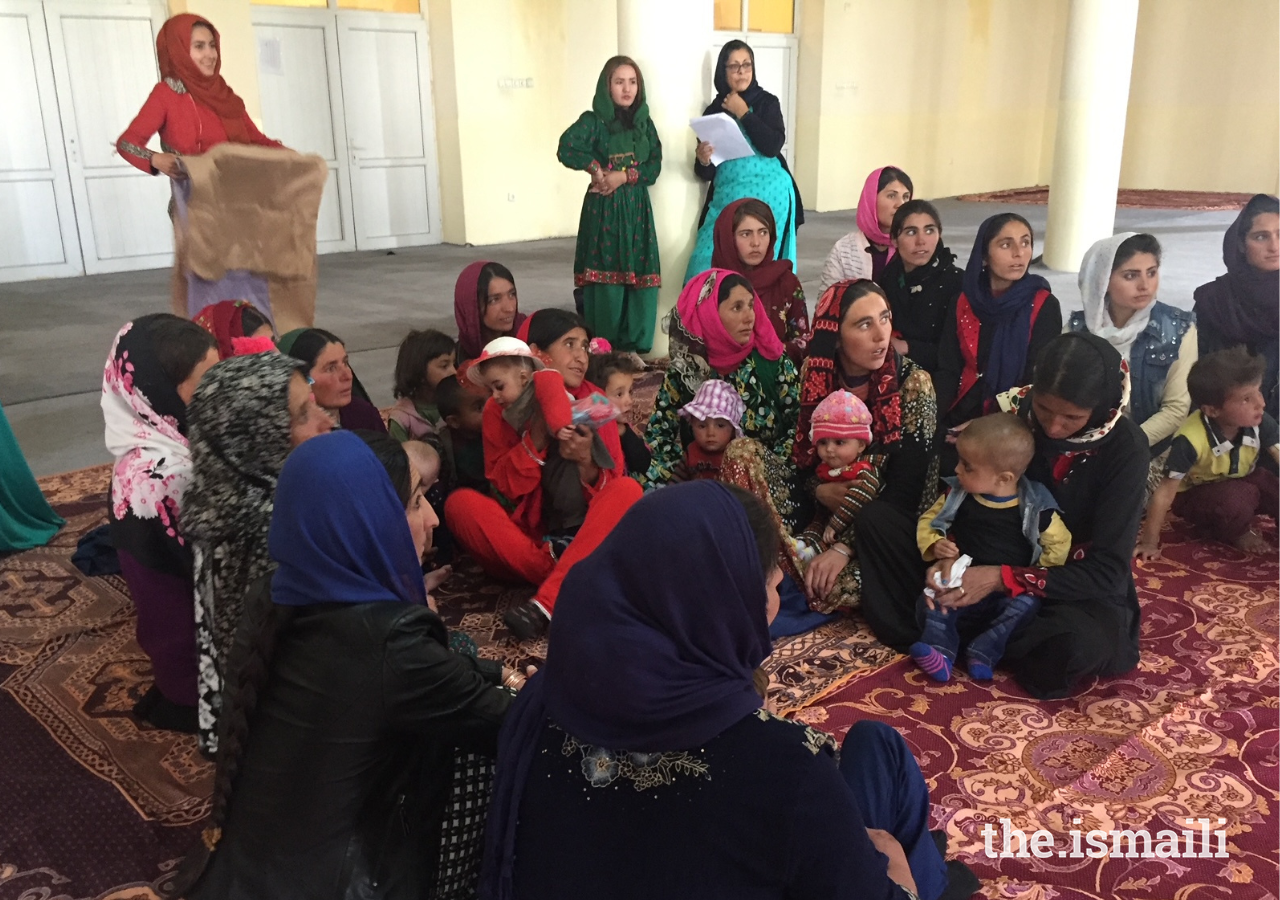Worldwide, 200 million children under the age of five are unable to reach their potential due to poverty, poor health and nutrition, and lack of learning opportunities. The vast majority of them are from disadvantaged households and communities in low-income countries.
Studies have shown that investments in Early Child Development (ECD) provide significant long-term benefits, including improved cognitive and social-emotional skills, which contribute to reduced economic inequality and an improved quality of life.
This is why Mawlana Hazar Imam has endorsed such programmes for the Jamat; to offer our children the best possible opportunities for future educational and career success. AKDN agencies and Jamati institutions run ECD programmes globally and train teachers in various parts of the world to set up their own centres.
Unfortunately, many children in Afghanistan have lacked an environment of stability and peace during their lifetimes, as have their parents. ECD programmes have the potential to generate intellectual and social dividends for children, and hope for the many families who continue to live in poverty.
During a visit to Pakistan, leaders of the Afghan Jamat, impressed by the Parwaaz ECD programme there for children aged six months to three years, requested assistance to develop a similar initiative.
In 2016, the Aga Khan Education Board in Pakistan began a pilot programme in Kabul to train ECD facilitators. Dr Almina Pardhan, an ECD specialist and Assistant Professor at the Aga Khan University’s Institute for Educational Development, had led the development of the Parwaaz ECD programme for Pakistan, and was asked to support the Afghan ECD team to create a similar plan.
The objective was to train teachers and adapt the pilot programme to the specific cultural and country context. Today, the programme is offered through the Aga Khan Education Boards in Dari and in other local languages.
“ECD interventions that empower and support families to provide quality nurturing care for their children are powerful, cost-effective equalisers that ensure all young children are able to reach their full potential,” said Almina.
“The earliest years of life, beginning before a child is even born, are so critical,” she added. “This is a time of rapid brain development, which provides either a strong or a weak foundation for learning, mental and physical health, behaviour, resilience and adaptability throughout life. A strong, healthy parent/caregiver-child relationship is crucial for early development.”
The pandemic interrupted the full-scale implementation of the programme in Kabul. So the national ECD programme coordinator, Abdul Razaq Shaheenhaider, and his team worked with Almina and TKN volunteer D’Jemilla Daya in the UK to pivot the model and develop a telephone-based and online curriculum. Roshan Telecommunications also supported the programme by providing mobile SIM cards to teachers and families.
“This programme is my 13-month-old daughter’s favourite,” said Hamida, whose child attends the Parwaaz ECD programme in Kabul. “When we first came to the sessions, she was not yet talking. She has started to speak and now, she sings songs and recites Qasida. I can see how capable and active my daughter is, and am grateful for such a wonderful programme.”
ECD programmes require materials, toys, and books for hands-on learning experiences, which parents sometimes find difficult to purchase due to limited finances. To assist, the team worked with teachers and parents to create toys from readily-available local materials and, such as rattles made from empty plastic bottles filled with stones; puzzles made of empty product boxes; plastic bowls for stacking; toy mattresses and blankets made of fabric remnants, and so on.
Even in the most remote areas, when parents use such locally available resources, they feel empowered to engage their children in learning and play.
Through talking, singing, reading, and playing, positive interactions and learning opportunities provide the first steps in building socialisation skills, healthy parent-child relationships, learning through play, and for parents to support their children’s health and education development. Parents have been able to come together as a community, share concerns and stories, and feel a sense of connection at this difficult time.
“Parwaaz is having a significant impact in building parents, grandparents, and other caregivers’ confidence to nurture their children’s healthy growth, development, and learning,” said Abdul Razaq, remarking on the initiative’s impact.
Over 100 facilitators have been trained thus far, and thousands of children have been enrolled in the programme.
“I learned that brain development starts even before birth,” said Yasmin, whose child attends the Parwaaz ECD programme in Faizabad, Badakhshan. “I also learnt other useful things like how to care for, provide good nutrition, and play with my child in the early years. I have learnt about helping to nurture my child’s relationship with Allah and the importance of pluralism in my child’s life.”
“Now, my child is very confident,” she adds. “He has just started to speak. He loves all the songs and activities in the session and responds positively to them.”








